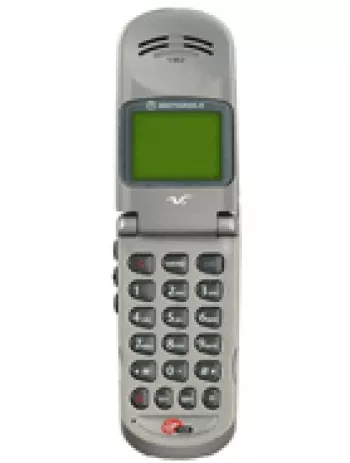
Network and Connectivity
The Motorola MILESTONE 2 ME722 supports both GSM and HSPA technologies, making it compatible with 2G and 3G networks. It covers various frequency bands, including GSM 850, 900, 1800, and 1900 for 2G and HSDPA 850, 1900, and 2100 for 3G. This range ensures that users can maintain connectivity across several international regions. The device offers HSPA speeds, providing users with a reasonably fast mobile internet experience for its time.
Launch and Availability
Announced in December 2010, the Motorola MILESTONE 2 was released in the first quarter of 2011. Despite its promising launch, it is now discontinued. This phone represented an era where smartphones were undergoing rapid evolution, captivating consumers with novel features and improved performance compared to its predecessors.
Design and Build
With dimensions of 116.3 x 60.5 x 13.7 mm and a weight of 169 g, the Motorola MILESTONE 2 balances portability with robust construction. It features a physical QWERTY keyboard, enhancing the typing experience, which is a preferred feature for many users who appreciate tactile feedback. The device uses a Mini-SIM, a common format before the widespread adoption of micro and nano-SIM cards.
Display
The phone sports a 3.7-inch TFT display with a resolution of 480 x 854 pixels and a 16:9 aspect ratio. This results in a pixel density of approximately 265 ppi, ensuring clear and vibrant visuals for multimedia consumption. The display is protected by Corning Gorilla Glass, offering resistance against scratches and minor impacts, which adds durability to the device.
Platform and Performance
Running on Android 2.2 Froyo, the Motorola MILESTONE 2 uses the TI OMAP 3630 chipset. The device is powered by a 1.0 GHz Cortex-A8 CPU along with a PowerVR SGX530 GPU, enabling it to handle basic apps and tasks with relative ease. While not capable of running the most cutting-edge applications by today's standards, it was a competent performer for its time, ensuring responsive navigation and functionality.
Memory and Storage
The device provides 8GB of internal storage, accompanied by 512MB of RAM. For users requiring more storage space, it supports microSDHC cards via a dedicated slot, which is vital for expanding storage capabilities to accommodate more apps, photos, and media files.
Camera Capabilities
The Motorola MILESTONE 2 is equipped with a 5 MP autofocus camera on the back. It features a dual-LED flash that enhances low-light photography. The camera can record 720p videos at 30fps, offering decent video quality for its era. However, it lacks a front-facing camera, which was a common limitation in smartphones of that period.
Sound and Audio
The phone includes a loudspeaker and a 3.5mm audio jack, allowing users to enjoy music and calls through external headphones or speakers. This audio versatility is appreciated by users who prefer wired audio solutions, which were the norm during its release.
Communication Features
The Motorola MILESTONE 2 comes with Wi-Fi 802.11 b/g/n, DLNA, and hotspot capabilities, allowing users to connect to wireless networks and share their internet connection. Bluetooth 2.1 with A2DP and EDR support ensures compatibility with a wide range of wireless accessories. It also has GPS support, including A-GPS for enhanced location accuracy. Unfortunately, it lacks a built-in radio, which some users might find limiting.
Sensors and Browser
The phone includes essential sensors such as an accelerometer, proximity sensor, and compass. Its browser supports HTML and Adobe Flash, providing a satisfactory web browsing experience, especially for a device released in the early 2010s.
Battery Life
The device is powered by a removable 1390 mAh Li-Po battery. It offers a standby time of up to 200 hours and a talk time of up to 3 hours and 50 minutes. The battery life is modest by today’s standards but was typical for smartphones of its release period. The removable nature of the battery is a practical feature, allowing for replacement if needed.
Miscellaneous Features
The Motorola MILESTONE 2 was available in black, providing a sleek, professional appearance. Its price at release was approximately 110 EUR, presenting a value proposition for users seeking a capable smartphone without high-end pricing.
Conclusion
The Motorola MILESTONE 2 ME722 stands out as a representative of smartphones during a period of rapid technological advances. While it would not compete with modern smartphones today, it offered a robust set of features for its time. Its combination of a QWERTY keyboard, Android OS, and expandable storage made it attractive to business professionals and tech enthusiasts alike.
Key Features of Motorola MILESTONE 2 ME722
- GSM / HSPA technology for network connectivity
- Compact design with dimensions of 116.3 x 60.5 x 13.7 mm
- Physical QWERTY keyboard for easy typing
- 3.7-inch TFT display with Corning Gorilla Glass protection
- Powered by Android 2.2 (Froyo) operating system
- 1.0 GHz Cortex-A8 processor with PowerVR SGX530 GPU
- 8GB internal storage with 512MB RAM and microSDHC support
- 5 MP main camera with autofocus and Dual-LED flash
- 720p video recording capability
- Wi-Fi 802.11 b/g/n with DLNA and hotspot functionality
- Bluetooth 2.1 with A2DP and EDR support
- GPS with A-GPS for positioning
- HTML browser with Adobe Flash support
- Removable 1390 mAh Li-Po battery
- 3.5mm audio jack and loudspeaker
- Available in Black color
Disadvantages of Motorola MILESTONE 2 ME722
- Lacks 4G LTE support, limited to 3G connectivity.
- Discontinued model, might lack manufacturer support and updates.
- Runs on outdated Android 2.2 (Froyo) operating system.
- Bulky body with a weight of 169g compared to more modern smartphones.
- Battery life is limited with only up to 3 hours and 50 minutes of talk time.
- No front-facing selfie camera available.
- Internal RAM is limited to 512MB, which may affect multitasking capabilities.
- Limited internal storage of 8GB, although expandable via microSDHC.
- No FM radio feature available.
- Uses Mini-SIM which is becoming obsolete as most newer phones use micro or nano-SIMs.

View Also
More Phones
All Rights Reserved +14266 Phones © Mobilawy 2025

























